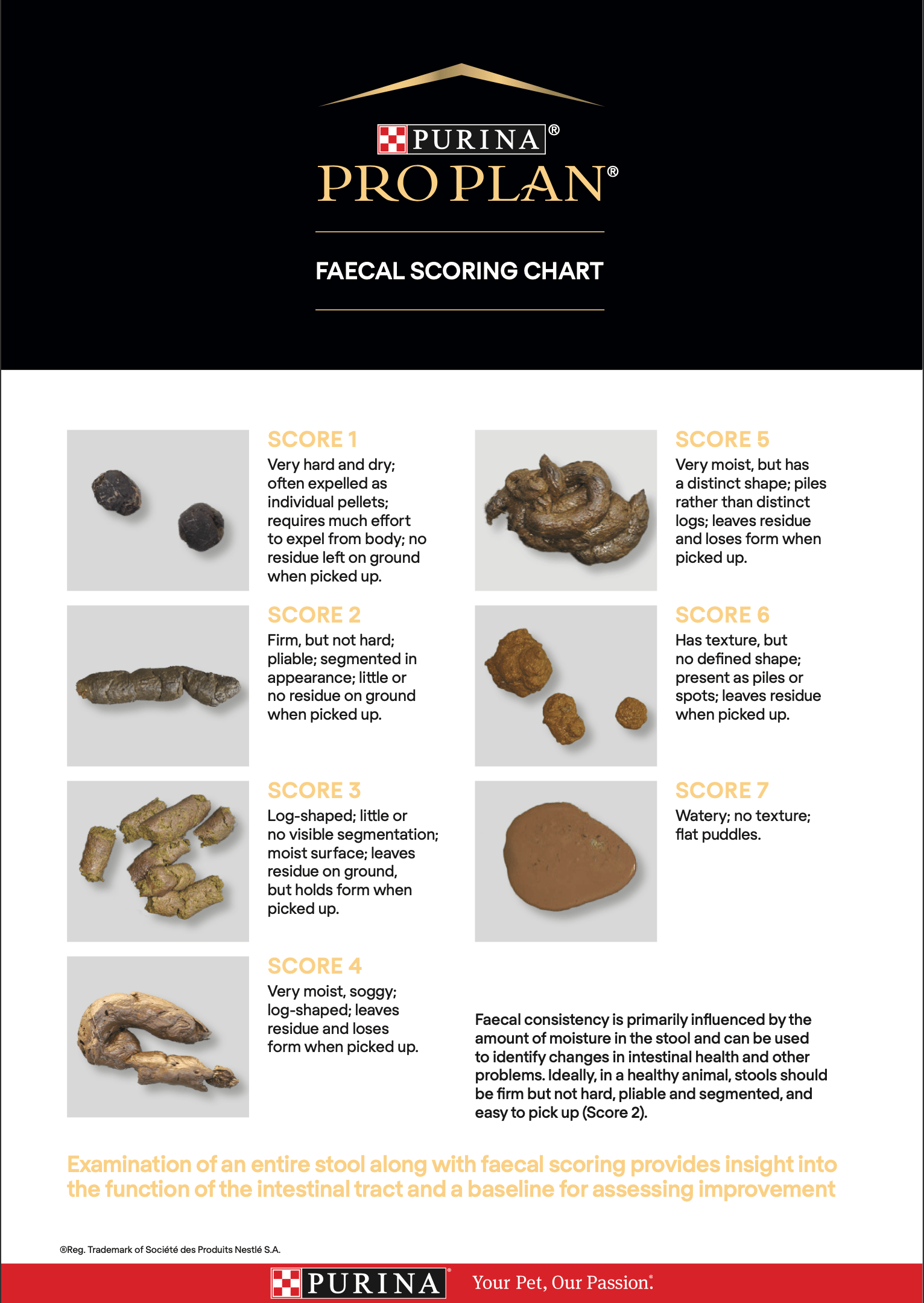
Diarrhea is one of the most common reasons dogs visit the veterinarian. By definition, diarrhea means repeatedly soft or loose stool due to excess fluid. One episode of loose stool is usually not an emergency, unless it is paired with other concerning symptoms.
There are two main types of diarrhea. Large bowel diarrhea happens when the colon does not properly reabsorb fluid. Small bowel diarrhea occurs when the small intestine sends poorly processed ingesta to the colon, which cannot form normal stool. Both types can be caused by many factors—some originating in the digestive tract, others as a side effect of disease elsewhere in the body. Common examples include parasites, liver or kidney problems, or simply eating something that doesn’t agree with your dog’s system.
What to Watch For
If your dog develops diarrhea, monitoring certain details can help both you and your veterinarian:
Recent changes: Has your dog had new food, treats, supplements, medications, or stress in the past 72 hours?
Blood: Is there bright red blood (frank blood) or black, tarry stool (melena)?
Frequency: How often are episodes happening? Remember, count episodes, not piles. If your dog squats multiple times during one outing, that’s still one episode.
Stool volume: Is the total daily amount similar to normal, or increased?
Urgency & straining: Does your dog urgently need to go or seem to struggle to pass stool?
Classification: Knowing fecal score for different episodes can help communicate with your veterinarian (chart below)
Diarrhea vs. Constipation
Sometimes diarrhea looks like constipation, especially in unsupervised outdoor dogs. A constipated dog strains but produces little to no stool, while a dog with profuse diarrhea may strain repeatedly due to urgency. As a general comparison, dogs with diarrhea usually pass stool within a few hours, while dogs with constipation may strain repeatedly with little to no output. Ongoing unproductive straining or failure to pass stool warrants veterinary evaluation.
When to Be Concerned

Seek urgent veterinary care if you notice:
A sudden change in your dog’s energy or attitude
Suspected ingestion of a foreign object (do NOT pull if you can see a foreign body coming out)
Only red blood being passed as stool
Rapidly worsening diarrhea within 24 hours
If your dog still seems like themselves, is drinking water, and only mild appetite changes, you can often schedule a non-urgent appointment within the next day. If stool quality worsens gradually over time and is paired with weight or muscle loss, make an appointment with your veterinarian for further evaluation.
At-Home Care

Hydration: Always provide fresh water. Dogs with diarrhea may drink more, so leave out extra bowls if you’ll be gone.
Diet: Recent dietary changes, including food, treats or supplements, are a common contributor to diarrhea. In mild cases, veterinarians often recommend temporary, easily digestible diets. Prescription diets should not be changed without veterinary guidance.
Medications & supplements: If diarrhea begins after a vet-prescribed medication, call before adjusting plan. If caused by a new over-the-counter supplement, pausing is commonly recommended until your dog has returned to normal and discussion with your veterinary team is best before restarting.
Exercise: Short walks may help them pass stool and settle. Bring water to rinse areas that can’t be fully cleaned.
Fiber & probiotics: These are commonly discussed tools that can support gut health, but too much fiber can make things worse. Your veterinarian can help determine whether they are appropriate for your dog.
Hygiene: Clean up promptly, even outdoors, since some causes of diarrhea can reinfect your dog, spread to other pets, or rarely, to people. Wash hands and paws as well.
Before the Vet Visit
If you’re headed to the vet, a fresh stool sample is often helpful for evaluation. Collect 1–2 tablespoons immediately after passing, place it in a clean plastic bag or container, and keep it cool until your appointment.
Diarrhea is unpleasant, but it’s also very common. By watching for warning signs, keeping your dog hydrated, and contacting your veterinarian when needed, you can help your pet recover quickly and comfortably.
Dog Sense contains information related to veterinary health care and does not replace veterinary advice. For any concerns about your dog's health, consult your veterinarian. Dog Sense content is not individual advice and should be considered in the context of your dog’s individual health needs.
Dr. C, DVM - a veterinarian who has worked in private practice and animal welfare while occasionally donating her time to research to improve the safety of animal products. Working in animal welfare inspired her to pursue opportunities that foster open educational dialogue that meet people where they are in their lives. In her spare time she enjoys gardening, hiking, and cooking with her family.
